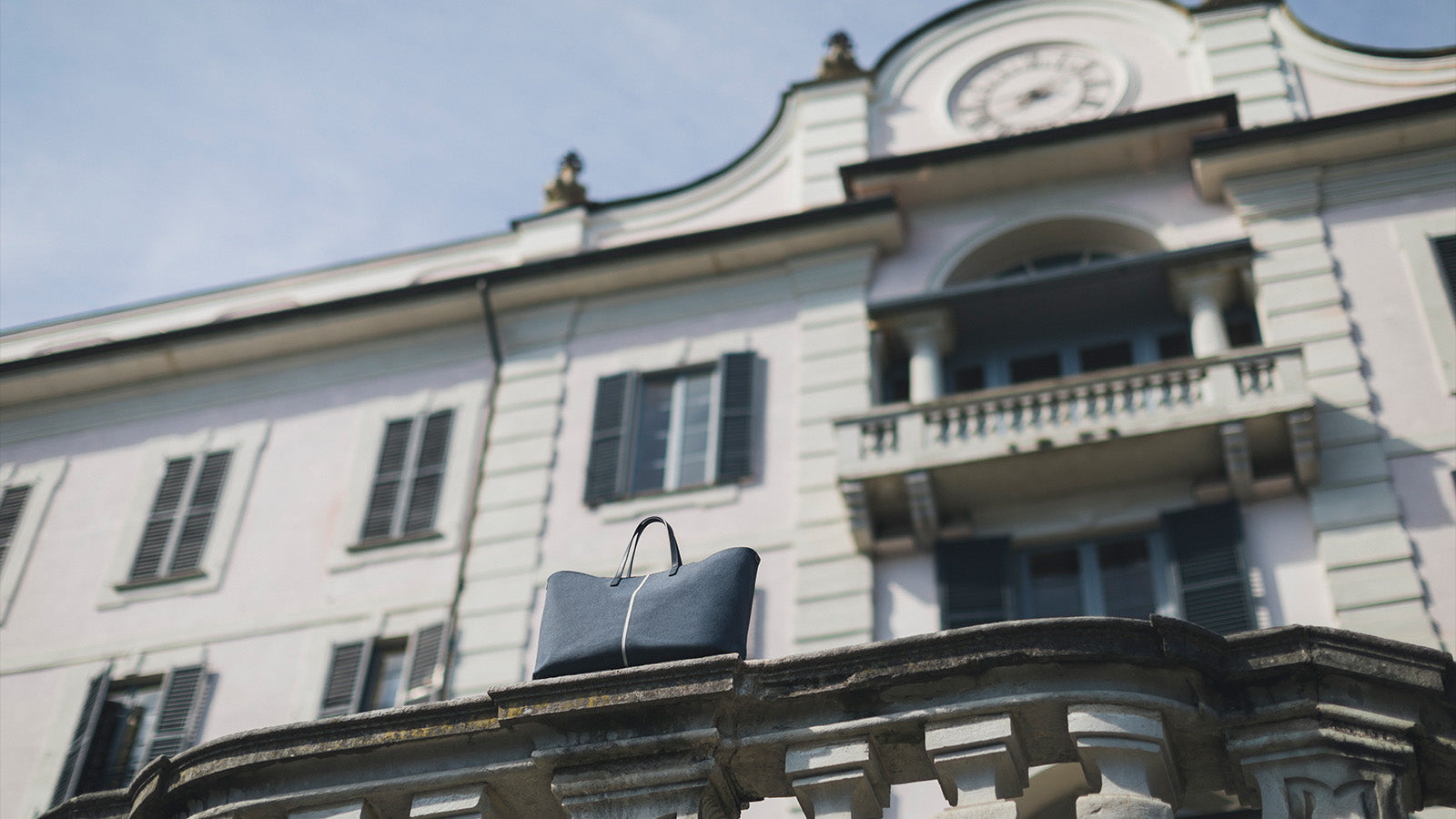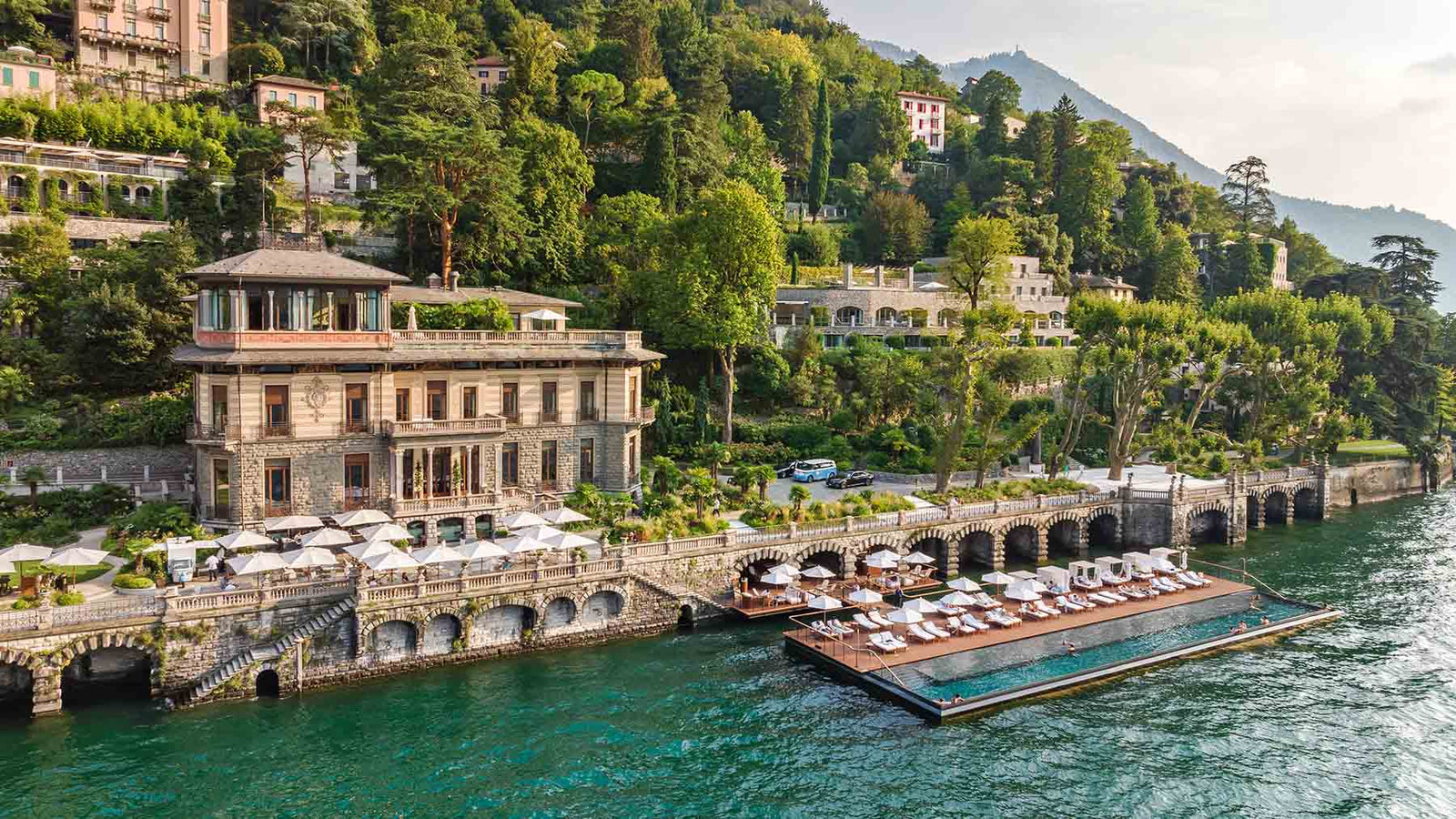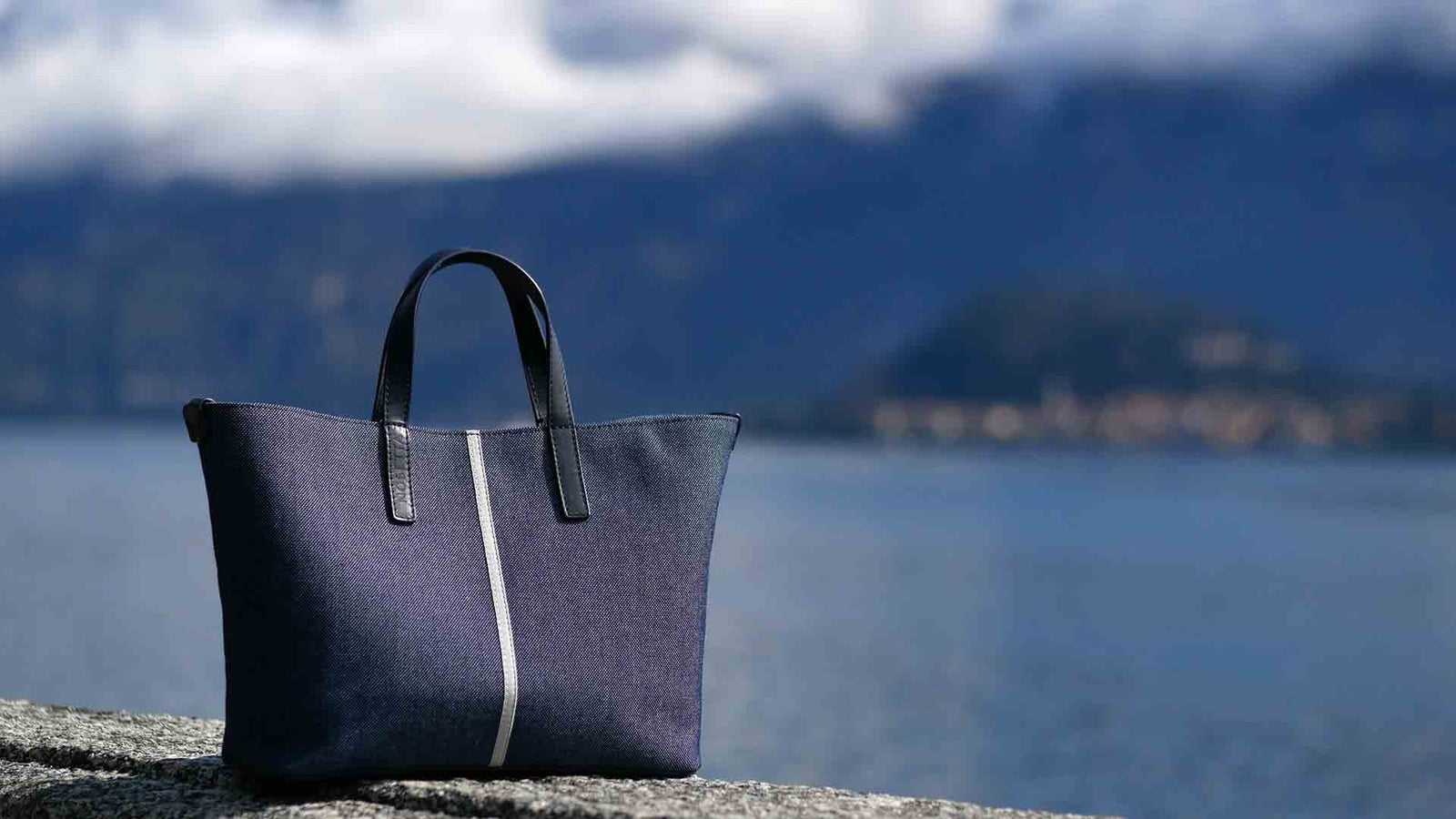Your Cart is Empty
Free EU Shipping · US Flat Rate $40
The unique atmosphere that reigns on Lake Como has always attracted tourists from all over the world, also thanks to the numerous historic villas that characterize the area. An artistic and cultural heritage that has always fascinated us, so much so that we use it as the name of our products.
Villa d’Este, originally Villa del Garovo, is one of the oldest residences on Lake Como. Located in Cernobbio, the first sources date back to 1442, the year in which the Bishop of Como established a convent for women. A century later, Cardinal Tolomeo Gallio demolished it and commissioned the architect Pellegrino Tibaldi to build a residence for personal use. For centuries the home of the aristocracy, after princesses, marquises, sultans and tsars, since 1873 it has been an elegant five-star resort.
Currently the villa is surrounded by a 10-hectare park with centenary plants where you can admire the Nymphaeum of Pellegrino Pellegrini, the Fountain of Hercules and the Temple of Telemachus. In its halls you can admire fascinating works of art, including some from the French school, others from the Canova school, as well as decorations by Andrea Appiani.

Built at the end of the seventeenth century by the Marquis Clerici, Villa Carlotta is located in the municipality of Tremezzina, on the shores of Lake Como. The construction looks like a building of great grandeur, but, compared to the canons of the time, also very sober. It houses a collection of nineteenth-century artworks of primary importance, which includes works by Thorvaldsen, Canova, Hayez, Marchesi. The vast garden unfolds around it, well known for the spring flowering of azaleas. The chapel, designed by Giacomo Moraglia and rich in sculptures, overlooks via Regina.

Of sixteenth-century origin, Villa Celesia (or del Grumello) boasts a magical view and an excellent location. It underwent several transformations over the centuries: in the years 1570-80, the villa was rebuilt by the banker Tommaso d’Adda and became one of the first residences of the Como nobility. Later it became the property of the Odescalchi family, who radically renovated it for their grandiose receptions. It then passed into the hands of the Giovio family and, in 1870, the Celesia family.
In 1954, Countess Giulia Celesia Cays of Caselette donated the Villa to the Sant'Anna Hospital in Como, leaving the works of art and furnishings kept in it to the Como Civic Museum. It then became a retirement home, and, from 1970 to 2000, it housed the style office of the Ratti silk factories.
In 2006, after a few years of neglect, the Villa del Grumello Association was established on the initiative of the Como Chamber of Commerce, which began the restoration of the Villa in order to make it a cultural center.

It is the oldest of the villas in via Borgo Vico, built on the site of the sixteenth-century Gioviano museum. Built at the beginning of the seventeenth century for the abbot Marco Gallio, it is built on a simple plan, with a large central hall and two loggias on the ground floor, one towards the lake and the other towards the mountain. The designer is unknown, just as the artists who painted the frescoes in the hall are still anonymous (probably the brothers Recchi and Isidoro Bianchi). It is currently the seat of the Province of Como and, as such, cannot be visited.

Located between Como and Cernobbio, Villa Flori enjoys a unique view of the lake. The origins of the building date back to 1859, when the Marquis Giorgio Raimondi decided to expand a previous structure as a wedding gift to his daughter Giuseppina, who later became the second wife of Giuseppe Garibaldi.
Currently Villa Flori is an elegant and renowned hotel, which has kept the nineteenth-century furnishings by combining them with modern elements, creating a romantic and contemporary atmosphere.

Villa Oleandra is a historic Art Nouveau residence in Laglio, on Lake Como. Since 2002 it has been the summer home of actor George Clooney, who made it so famous. The Villa Oleandra complex has been present in the cadastral maps of the small town since 1720, albeit with different shapes compared to the current state.

Located in the small town of Griante, on Lake Como, Villa Margherita stands out for its correlation with the music world. The residence has in fact two external sculptures (probably allegorical representations of Music and Poetry, the last trace of a series of statues that have now disappeared) and a hemicycle room that was once dedicated to concerts. Built in 1853 on commission from the publisher Giulio Ricordi, the Villa also hosted the famous musician Giuseppe Verdi during the composition of La Traviata.

The plan for the construction of the villa was born in 1676 by the designer Antonio de Carli, from whom the residence takes its name. Located in Tremezzo, it later became the property of the noble Albertoni family, who lived there until 1988, when it was officially transformed into residential apartments. Over the years it underwent several changes, which did not however alter the clean and linear style that characterizes it.

In Torno, in a panoramic position, stands Villa Mia. Built in 1889 by the Vergani family, the residence has a unique style and Neo-Renaissance influences. In 1984 it was bought by Prince Sultan Bin Abdul Aziz Al Saud (1928-2011), heir to the throne of Saudi Arabia.

Villa Rachele stands in front of the Comacina Island, on the site of an ancient fortification and at the end of a small peninsula called "la Puncia" (ie the tip).
The current building is spread over three floors and dates back to the early nineteenth century. The garden was rearranged around the middle of the same century by Giuseppe Balzaretto, the famous Italian architect of the gardens, and can only be visited on special occasions.

Certain places on Lake Como hold their secrets close. Villa La Cassinella, perched on a private peninsula near Lenno, is among the most discreet. As for its owner, speculation ranges from Richard Branson to various other names, though the villa itself maintains studied silence. Chef Alessia cooked here this summer, and she's sharing a holiday risotto recipe from those months—one that traces her journey from Como to Copenhagen's Michelin kitchens and back home.
Nestled in the historic villa of 19th-century opera legend Giuditta Pasta, Mandarin Oriental Lago di Como represents the pinnacle of Italian hospitality. The resort's breathtaking 40-meter infinity pool, designed by Herzog & De Meuron, appears to merge seamlessly with Lake Como's emerald waters. Century-old botanical gardens, Michelin-starred dining at L'ARIA, and an award-winning spa create an atmosphere of timeless elegance. In this sanctuary of authentic luxury, Nosetta's handcrafted Italian accessories find their natural home—understated pieces that complement the resort's philosophy of refined sophistication.
The small tote bag has become an essential accessory in the fashion world. Combining functionality and style, this compact bag offers enough space for an iPad, phone, and wallet without sacrificing elegance. Prestigious brands like Goyard and Marc Jacobs have elevated this accessory to a luxury icon, while Nosetta offers artisanal versions inspired by Lake Como at accessible prices. Made with high-quality materials, the small tote represents the perfect choice for those seeking a practical, elegant, and sustainable bag for everyday life.



